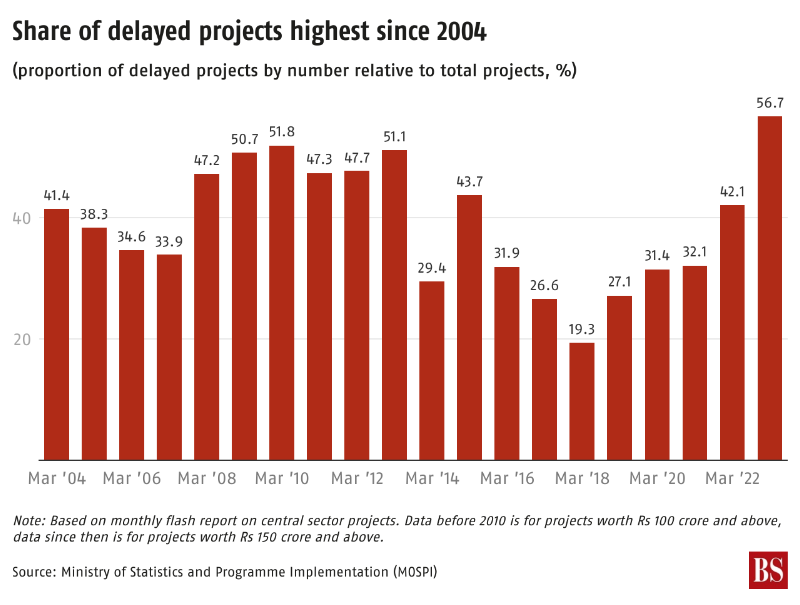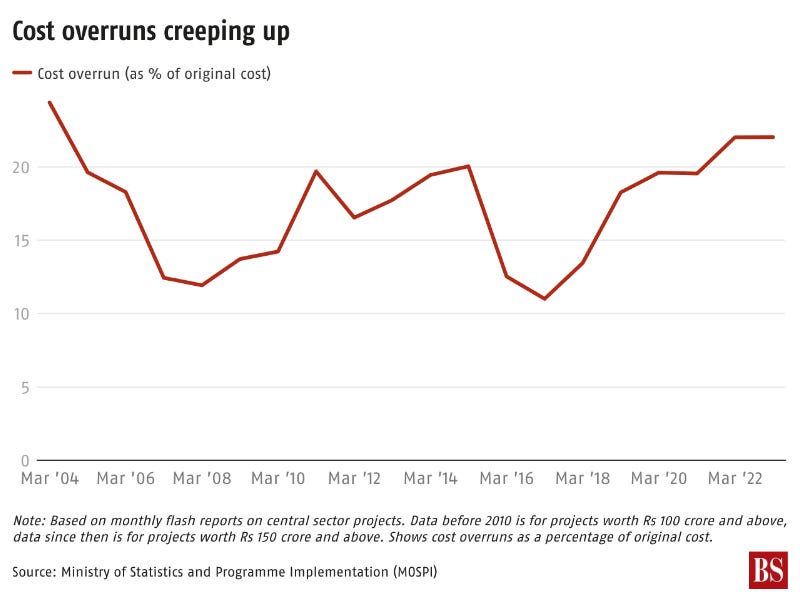When government projects miss the deadline
Average delays of over three years mean large cost overruns
The Udhampur-Srinagar-Baramulla railway line was sanctioned in 1995: it is still work in progress, making it one of India’s longest-delayed government infrastructure projects. The Taj Mahal took 20 years to build in contrast.
Project delays were improving in recent years—legacy initiatives aside—but show signs of slipping again as the country makes a renewed push for infrastructure. The share of delayed central government projects hit a low of 19.3 per cent in 2018. It increased to 56.7 per cent as of March 2023. Such delay for central government projects is currently likely to be the highest in around 20 years, according to data from the Ministry of Statistics and Programme Implementation’s monthly flash reports published by the Infrastructure and Project Monitoring Division. Business Standard compiled figures from the reports since March 2004 to track the changes seen in chart 1 (click image for interactive chart).
The government has been pushing more projects than before. There are 1,449 central government projects underway, according to the ministry’s flash report. The report recorded 558 central government projects in March 2013 and 285 in March 2004. The data prior to 2010 tracked projects worth Rs 100 crore or more. The threshold since then is Rs 150 crore, but numbers would be broadly indicative of the general trend.
Delayed projects mean increased cost overruns. The projects are now expected to cost 22 per cent more than originally estimated. In absolute terms, this means an additional expenditure of Rs 4.6 trillion--or more than 120 times the money spent on completing the Konkan Railway project which cost Rs 3,550 crore in 1997. In percentage terms, the cost overruns were last this high in 2004 (chart 2).
Projects have had a time overrun of over three years as of March 2023 on average. Land acquisition, obtaining forest or environment clearances, lack of infrastructure support, and linkages are some reasons for projects being delayed. The Indian Railways has a bulk of the delayed projects and it accounted for Rs 2.5 trillion in cost overruns. It is followed by power (Rs 0.6 trillion) and water resources (Rs 0.5 trillion), among others (chart 3).
The Baramulla line had an original cost of Rs 2,500 crore. This has since increased to over Rs 37,000 crore. It is finally expected to be complete in June.





